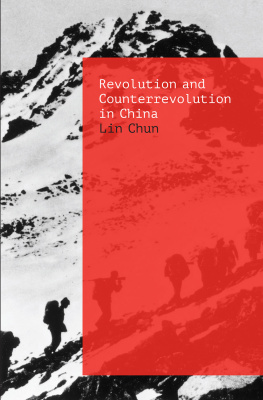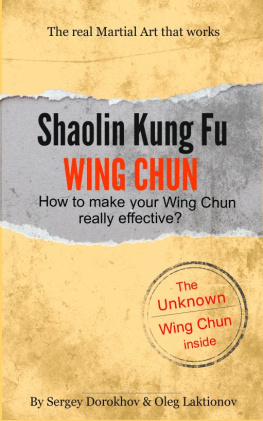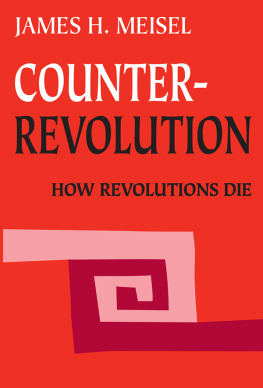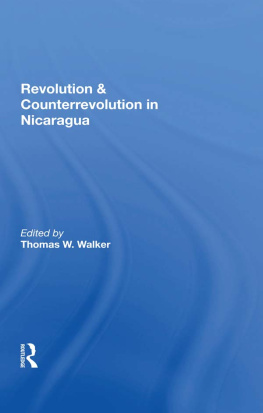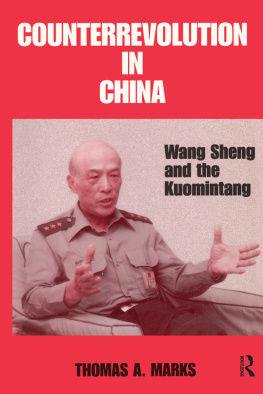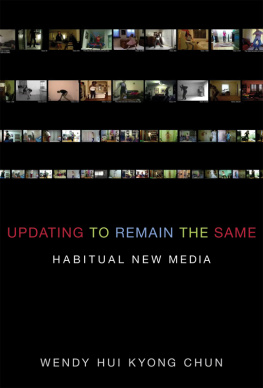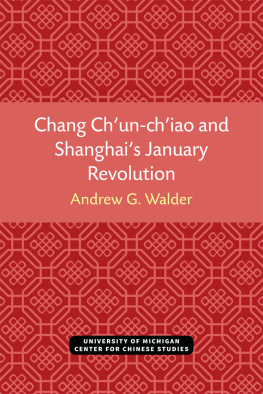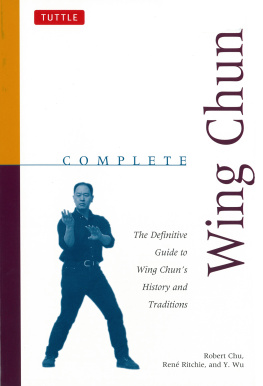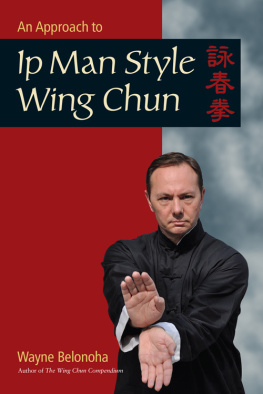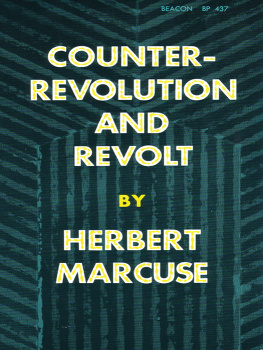Lin Chun - Revolution and Counterrevolution in China
Here you can read online Lin Chun - Revolution and Counterrevolution in China full text of the book (entire story) in english for free. Download pdf and epub, get meaning, cover and reviews about this ebook. year: 2021, publisher: Verso, genre: Politics. Description of the work, (preface) as well as reviews are available. Best literature library LitArk.com created for fans of good reading and offers a wide selection of genres:
Romance novel
Science fiction
Adventure
Detective
Science
History
Home and family
Prose
Art
Politics
Computer
Non-fiction
Religion
Business
Children
Humor
Choose a favorite category and find really read worthwhile books. Enjoy immersion in the world of imagination, feel the emotions of the characters or learn something new for yourself, make an fascinating discovery.
Revolution and Counterrevolution in China: summary, description and annotation
We offer to read an annotation, description, summary or preface (depends on what the author of the book "Revolution and Counterrevolution in China" wrote himself). If you haven't found the necessary information about the book — write in the comments, we will try to find it.
Lin Chun: author's other books
Who wrote Revolution and Counterrevolution in China? Find out the surname, the name of the author of the book and a list of all author's works by series.
Revolution and Counterrevolution in China — read online for free the complete book (whole text) full work
Below is the text of the book, divided by pages. System saving the place of the last page read, allows you to conveniently read the book "Revolution and Counterrevolution in China" online for free, without having to search again every time where you left off. Put a bookmark, and you can go to the page where you finished reading at any time.
Font size:
Interval:
Bookmark:
This eBook is licensed to Ryan Deason, iatemoreearth@gmail.com on 09/05/2021
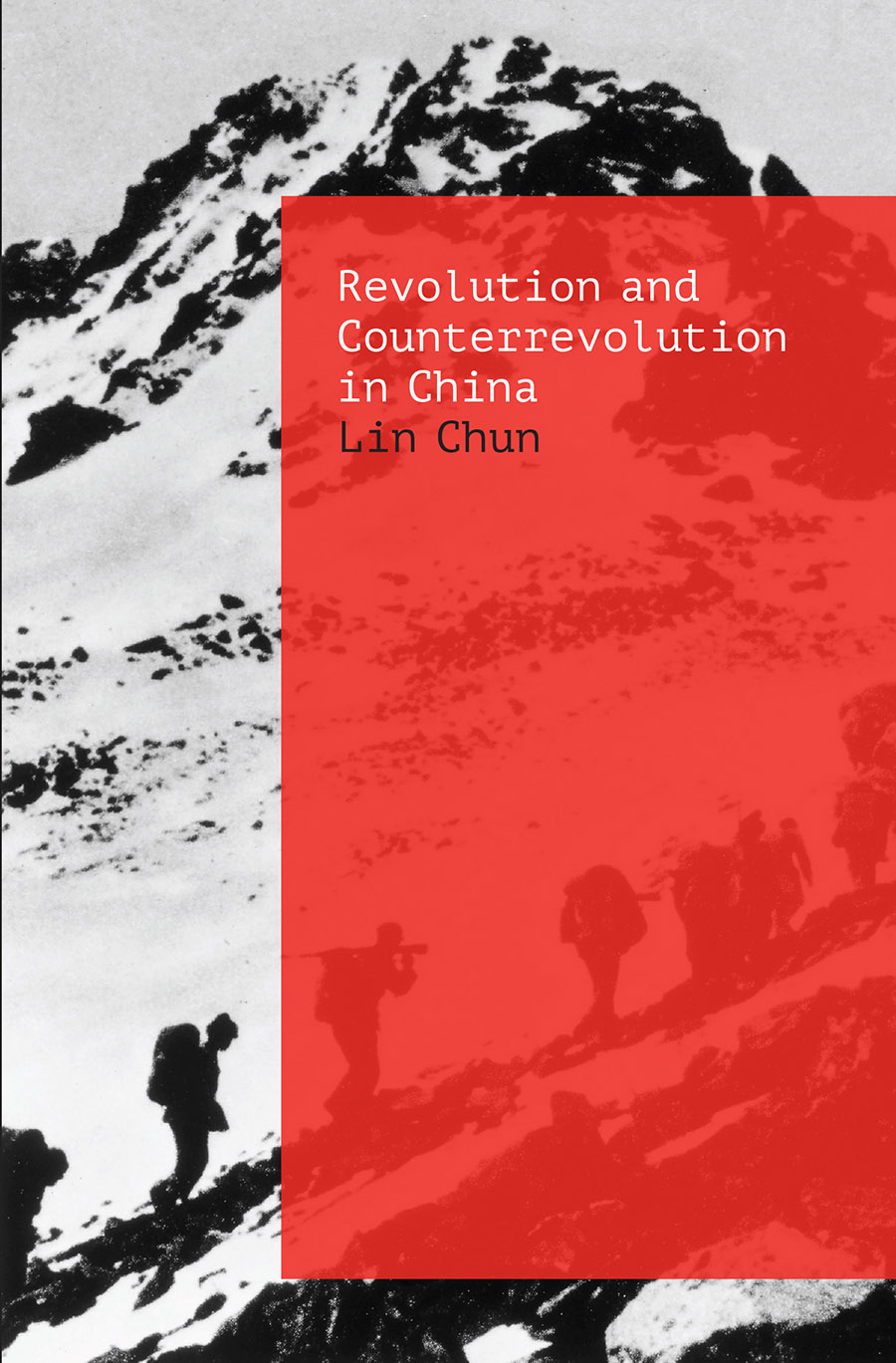
Revolution and
Counterrevolution in China
This eBook is licensed to Ryan Deason, iatemoreearth@gmail.com on 09/05/2021
Revolution and
Counterrevolution in China
The Paradoxes of Chinese Struggle
Lin Chun

This eBook is licensed to Ryan Deason, iatemoreearth@gmail.com on 09/05/2021
First published by Verso 2021
Lin Chun 2021
All rights reserved
The moral rights of the author have been asserted
1 3 5 7 9 10 8 6 4 2
Verso
UK: 6 Meard Street, London W1F 0EG
US: 20 Jay Street, Suite 1010, Brooklyn, NY 11201
versobooks.com
Verso is the imprint of New Left Books
ISBN-13: 978-1-78873-563-6
ISBN-13: 978-1-78873-564-3 (UK EBK)
ISBN-13: 978-1-78873-565-0 (US EBK)
British Library Cataloguing in Publication Data
A catalogue record for this book is available from the British Library
Library of Congress Cataloging-in-Publication Data
Library of Congress Control Number: 2021930373
Typeset in Minion by Biblichor Ltd, Edinburgh
Printed and bound by CPI Group (UK) Ltd, Croydon CR0 4YY
This eBook is licensed to Ryan Deason, iatemoreearth@gmail.com on 09/05/2021
To the memory of Lin Xia sister, friend, a pure
soul, true communist; and to our romance with
revolution growing up in red China
This eBook is licensed to Ryan Deason, iatemoreearth@gmail.com on 09/05/2021
Contents
Part One: Revolution and History;
China and Global Capitalism
This eBook is licensed to Ryan Deason, iatemoreearth@gmail.com on 09/05/2021
A century ago, in July 1921, thirteen people representing Chinas earliest communist groups already working on promulgating the Marxist ideas and labour agitation in various provinces gathered in Shanghai to hold their first national congress. The founding of the Chinese Communist Party (CCP), the revolution it led to victory twenty-eight years later and the social transformations it has steered since have all been nothing less than world-historical. Time and again the party has narrowly escaped extinction, only to build itself into the largest and most formidable revolutionary party in history until undergoing a perceived normalization after thirty years in power. This book focuses on the continuing changes within the Peoples Republic and the unprecedented challenges it faces today, set against the historical and international parameters of global capitalism which are themselves evolving, ascribable to the intervening forces among others of the China factor. About Chinese development and its vast internal and external implications, I wish to ask what, where, how and why, in the awareness that there is no simple answer to any of these questions and history can never end. With an open mind, I appreciate sharing some preliminary clarifications in debating the nature and orientation of struggles in China.
I am deeply grateful to the friends and colleagues with whom I have had the good fortune to discuss relevant issues; many of their own works have also inspired and educated me. I owe them a huge intellectual debt. I have nevertheless decided not to name any individuals, so as . I thank these publishers and editors for their kind permission.
On this occasion of the CCPs centennial, the first thing to remember is that tens of millions of heroic men and women, mostly young, fought and died for the creation of a new China and a new world. Their precious lives should not be wasted. This is the pledge we all made as Young Pioneers. My late sister, to whose memory this book is dedicated, was serious about it all her life, as a pupil, peasant, student, scientist, researcher, technician and teacher (in that order), more serious than typical officials today. I miss singing with her our favourite revolutionary songs; the best we did was to duet On the Taihang Mountains (a red base area 193749) and Theres a Young Soldier (untitled with wartime Soviet lyrics).
Lin Chun
1 October 2020
This eBook is licensed to Ryan Deason, iatemoreearth@gmail.com on 09/05/2021
Revolution and History;
China and Global
Capitalism
This eBook is licensed to Ryan Deason, iatemoreearth@gmail.com on 09/05/2021
China is an ancient civilization, one of the oldest and longest surviving in human history. The origins of the QinHan state were being built at around the same time as the rise of Rome in the Western Hemisphere, from an amalgam of the Warring States and the conquest of Greek poleis respectively. Both China and Rome expanded into giant empires, comparable in scale, splendour and sophistication. The silk people (as the Romans called the Chinese), and Da Qin (as the Chinese called the Romans), although having little actual knowledge of each other, conducted a flourishing trade, making exchanges across vast continental and maritime expanses and involving many other societies. Yet imperial China, influenced also by the earlier Arabic-Persian and Indus cultures, had no affinity with the military might and methods typical of its European counterpart. And their political genetics differed between the dominant ideas of unity in the former and of autonomy in the latter. In this sense, empire a term borrowed from the language of the Europeans is the wrong label for China until a much later stage (it is used here only by convention, with due awareness of the mismatch). While the Roman Empire fell in the fifth century, China survived all the major premodern empires. The far-reaching imperial stretch, rooted in the basic social organism of official-gentry management, cultural magnetism and elastic inter-unit liaisons, is a factor in this longevity.
While republican Rome appears paradigmatic in Western history, ancient China is often believed to be a despotic outlier from normal progress, to the extent that many of modern Chinas political traits are
The intensity of imperialist encroachment and anti-imperialist movements marked a revolutionary century in China under the influence of the Russian Revolution, constitutive of wider liberation struggles at the time. To situate China globally by way of clarifying its evolving interactions with the genesis and expansion of capitalism is not to find a fixed genealogical entity in a static international order, nor is it to measure the distance between a latecomer and some standardized modern projection. To track Chinas transformations as a nonlinear series of historical passages, both forwards and backwards, is to bypass the European imagination of the world epitomized by the capitalist totality. Yet capitalism encompasses the local and global contexts, at the same time catalysing Chinas industrial growth and social contestations, communist and post-communist transitions, and competing political and socioeconomic systems more broadly. It has been a process of uneven development, one filled with contradictions as well as opportunities.
Globallocal interactions are always a two-way street, containing both possibilities and constraints. Because of the overriding and relentless power of capital, any sizeable national or regional society can be understood only in its position relative to the conditions of global capitalism. We therefore follow Marxs conception of world history, beginning with the epoch of capitalist global transformation, which for the first time connected hitherto disjointed economies and cultures through a chain of conquests by both heavy artillery and cheap commodities. Capitalism is thus an engine of modern global development, and one that requires a holistic approach from observers and critics. The epochal conditions shaped by capitalisms economic, political, military and ideological powers were colonial and imperialist from the outset. In turn, these conditions are so powerful that they become internal to local and initially resistant societies, disregarding the diverse identities, desires or contentions of a heterogeneous globe.
Font size:
Interval:
Bookmark:
Similar books «Revolution and Counterrevolution in China»
Look at similar books to Revolution and Counterrevolution in China. We have selected literature similar in name and meaning in the hope of providing readers with more options to find new, interesting, not yet read works.
Discussion, reviews of the book Revolution and Counterrevolution in China and just readers' own opinions. Leave your comments, write what you think about the work, its meaning or the main characters. Specify what exactly you liked and what you didn't like, and why you think so.

